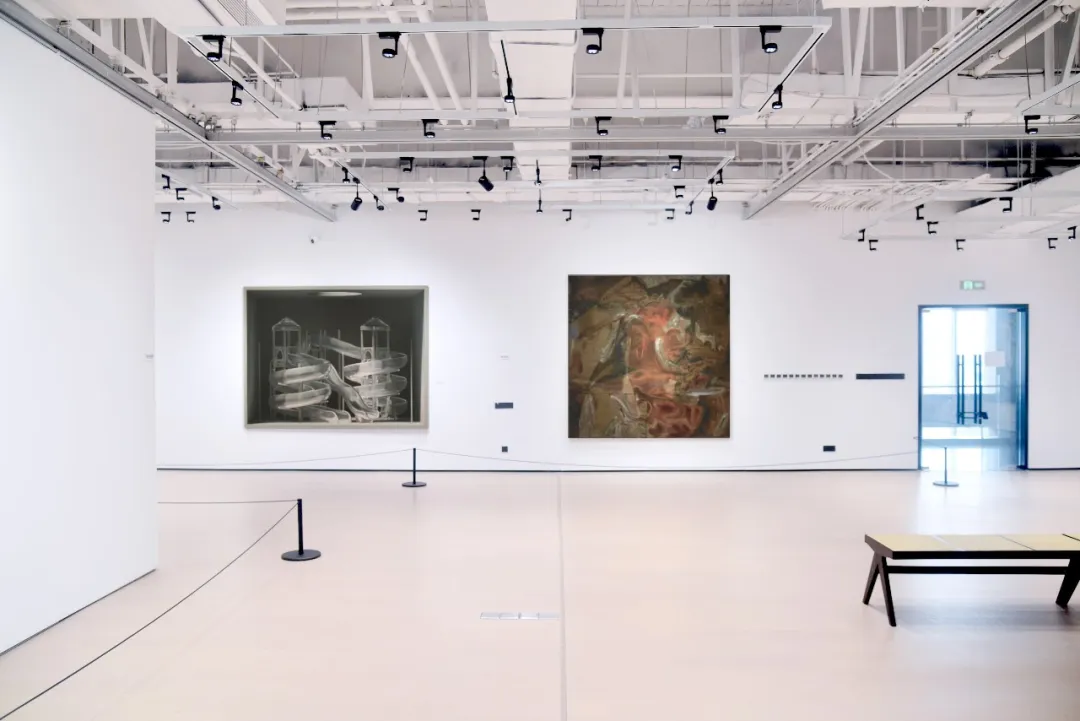Æmen Ededéen: The Work’s Pathos should Come from Its Worn-out-ness IV
J: The work were made using the collage technique. There's a thoughtful gap placed near the center of the canvas. Could you share more about its meaning?
E: Like all the holes, tears, gaps and so on in my work, they rarely happen intentionally. The hole in the piece happened early in the process, and I could have repaired it or changed it or started over, but decided, rather, to trust it. I try never to waste any occurrence in the work, and when things happen unintentionally, I take them seriously as one would a sign from the natural world. I can’t say what it means, only that it’s important, that it makes the piece specific and real somehow.
What I often notice in the work, and generally want, is a sense that the work, for all of its weight and heft, is barely holding itself together. In the way life itself is, the work’s pathos should come from its worn-out-ness. A wounded thing needs to be cared for, to be picked up out of the mud and treated delicately. I want to make beautiful things, but beauty for me is to do with a question of survival. What could easily have not survived, and yet has, is the most beautiful thing there is. It’s not merely about how something “looks” but how it “needs to be seen.” How a thing might show traces of its own subjectivity. That’s where its pathos comes from.
In the case of this painting, though the gap doesn’t express a conscious intention on my part, I can see it now, in its way, as the trace of its own birth. Both a trace and absence of a memory.
J: Regarding our current exhibition titled Mystical Me, explores the idea of “how we can build our sense of self when feeling lost and how we can rise above that disorientation during this journey”. We'd love to hear your thoughts on this topic.
E: What if, when lost, instead of looking for things to cling to, instead of referring to what I think of as “myself,” I simply allow lostness? Just sit with it? “I don’t know where I am.” What happens next? I look around. “This is a tree. This is a rock. That is a bird.” I look at my hands. “These are my hands.” How strange all the words sound. “Hand. Bird. My.” I feel like an alien or a ghost in this place, even as the place itself feels somehow deeply familiar. Is this a new feeling or an old one?
How very dreamlike reality is when I stop struggling against it. Sitting with that, it occurs to me I no longer need to struggle to seem like the person I thought I was supposed to appear as. What if the only true freedom one has in life is to give ourself permission to be what one already is, however ineffable the Self?
What if the only authentic insights we have are the ones we receive on a day-to-day basis, which we can’t explain, and which don’t occur for the sake of a desired outcome? What if the only outcomes that occur are only visible in retrospect after half a life is lived? What if nothing can be built, but only given? The difference isn’t merely semantic, and the body knows the difference between something forced and something which naturally arrises. When we’re lost we don’t want to hear that the only thing to do is to stop struggling. When I’m lost while driving in my car, I tend to speed up, as if that will help me get somewhere. I only get lost faster. I use up more gas.
The poet Christian Wiman, while undergoing treatment for blood cancer and expecting to die, wrote in his book My Bright Abyss: “…there is the sense in which our most pressing existential question has to be outgrown before it can be answered.”
Edit by Sai, Veronica





